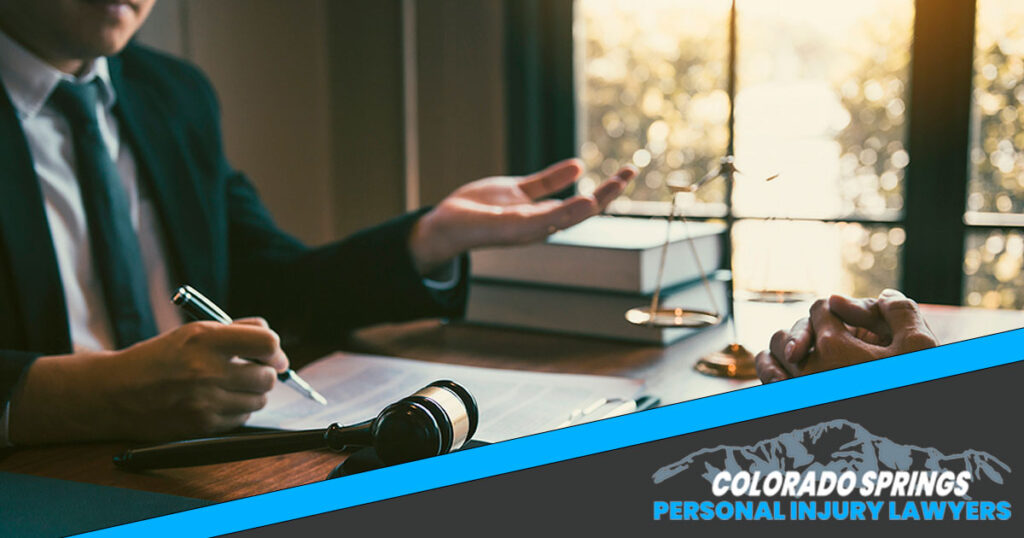If you have a criminal record, you’ve likely experienced your past pop back up and affect your life. The implications it can have on employment, housing, and even social relationships are well-known. However, you may now find yourself facing another dilemma: what if you become the victim of an accident or someone else’s negligence? Could your prior criminal record create additional challenges when attempting to file a personal injury claim?
Can A Criminal Record Stop Me From Filing A Personal Injury Claim?
The answer is not straightforward and depends on your particular situation. Insurance companies and defense attorneys indeed seize upon any opportunity to mitigate their liability or dispute the validity of your claim. They often try to use your personal history against you and they’ll jump on the chance to use concerns surrounding credibility or past behavior to stop you from receiving what you’re owed. Nonetheless, you are a victim and you deserve compensation, despite your past.
In essence, while having a criminal record might introduce additional complexities to a personal injury claim process, it does not automatically disqualify you from seeking compensation. Every case is unique, and the impact of your criminal record will depend on various factors. In cases of a car accident victim with a criminal history, hiring a Colorado Springs personal injury attorney is strongly recommended.
Can An Insurance Company See My Criminal History?
Criminal records consist of documented information about an individual’s criminal history, including arrests, charges, convictions, and any related legal proceedings. Criminal records are generally considered public records. This means that they can be accessed by anyone with a legitimate reason to do so.
Insurance companies may have access to certain databases that compile criminal records alongside driving history and other relevant data for assessing risk factors. They may request access to such databases during their investigation into a personal injury claim to gather additional information about an individual involved in an accident.
Additionally, when insurance companies are defending against personal injury claims or determining the liability of their insured party, they may hire legal representatives who have access to court records and official documents where criminal histories would be disclosed.
Lawyers involved in personal injury cases also have access to similar resources. They can conduct background checks on parties involved in litigation using authorized methods such as public record searches or employing professional researchers who specialize in uncovering pertinent details.
How Is My Criminal Record Relevant to My Personal Injury Claim?
The impact of a criminal record on your personal injury claim often depends on two key factors: the type of crime you were convicted for and how long ago the conviction occurred. If, for instance, you were charged with a DUI more than ten years ago, its effect on your case will likely be minimal. Typically, less serious crimes that took place several years ago have less influence on current legal proceedings.
On the other hand, convictions for felonies or crimes involving fraud and dishonesty can carry more weight and negativity in personal injury cases. Juries are made up of regular people from your community with their own prejudices. They generally hesitate to provide financial compensation to claimants who have been convicted of crimes related to deceit or serious misconduct unless there is compelling evidence showing genuine change. Consequently, more recent convictions tend to have a stronger impact because they make it harder to prove significant transformation within a short period of time. For example, if someone committed forgery less than a year before their personal injury claim, jurors are likely to view their character with skepticism.
It’s crucial for individuals with criminal records pursuing personal injury claims to navigate this challenge thoughtfully and alongside a Colorado Springs personal injury attorney. Being aware that their past actions may be held against them in legal proceedings is important. However, presenting credible evidence of rehabilitation and efforts toward positive change can help counteract negative perceptions.
The Role of Fault and Liability in Personal Injury Cases
Personal injury cases primarily revolve around establishing fault and determining negligence in the specific case, not your past. When pursuing a personal injury claim, the focus should be on proving that the other party involved in the accident acted negligently or recklessly, causing harm to you. Therefore, unless there is a direct correlation between your previous criminal activities and the circumstances surrounding the accident (e.g., driving while intoxicated), people generally understand that unrelated criminal records should not affect one’s ability to seek rightful compensation for their injuries.
The Importance Of Disclosure And Honesty with Your Colorado Springs Personal Injury Attorney
When it comes to personal injury cases, it is crucial to have open and honest communication with your Colorado Springs personal injury attorney regarding any past convictions you may have. This duty to disclose ensures that your attorney can strategize effectively on your behalf and provide you with the best possible legal advice. Maintaining an atmosphere of trust and transparency with your Maintaining an atmosphere of trust and transparency with your Colorado Springs personal injury attorney is what will enable you to recover the most possible compensation.
By sharing your criminal record with your attorney, they can assess the potential impact it may have on your personal injury case. This allows them to devise a tailored strategy that takes into account any challenges or biases that may arise due to your previous convictions. It also enables them to guide you through the legal process while safeguarding your rights and interests.
One significant aspect of this duty is the confidentiality between clients and attorneys. Your Colorado Springs personal injury attorney is bound by professional ethics and legal obligations which ensure that the information you disclose remains confidential. This means that they cannot share this information without your consent, providing you with a safe space where you can discuss all relevant details related to your past convictions openly.
Remember, disclosing past convictions to your attorney does not mean judgment or condemnation – their role is to provide you with effective legal representation regardless of past mistakes. With open communication and trust established, they can work alongside you to achieve the best possible outcome in your personal injury case while ensuring that confidentiality is maintained throughout the entire process. Working with a trustworthy Colorado Springs personal injury attorney will help you receive your fair compensation.
Compensation In Personal Injury Claims
When you file a personal injury claim after an accident or incident caused by someone else’s negligence, the main objective is to seek compensation for the losses suffered as a result of your injuries. This compensation aims to help restore you back to the position you were in before the accident occurred.
In a successful personal injury claim, different types of compensation can be sought:
Medical expenses
This includes reimbursement for all past and future medical bills related to your injuries resulting from the accident. It covers costs like hospital stays, surgeries, medications, rehabilitation services, therapy sessions, assistive devices (wheelchairs/crutches), and any other necessary medical treatments.
Lost wages
If your injuries have prevented you from working during your recovery process or have affected your ability to earn income in the future due to long-term disabilities or reduced earning capacity – you can seek compensation for lost wages.
Pain and suffering
Personal injury claims also account for non-economic damages like pain and suffering endured as a direct result of the accident.
Property damage
In some instances where property was damaged – such as vehicles involved in car accidents – compensation can be sought to cover repair or replacement costs.
Emotional distress
If the accident has caused significant emotional trauma, resulting in anxiety, depression, or post-traumatic stress disorder (PTSD), you may also seek compensation for emotional distress.
Punitive damages
In rare cases where the negligent party’s conduct was particularly reckless or malicious, punitive damages can be awarded as a way to punish the responsible party and deter similar behavior in the future.
It is important to note that the specific types and amount of compensation you may be eligible to receive will depend on various factors unique to your case, including the severity of your injuries, the impact on your daily life or earning potential, and any other relevant circumstances surrounding the incident.
Contact A Colorado Springs Personal Injury Attorney For A Free Consultation
If you have a criminal record and find yourself involved in a car accident where another party’s negligence caused your injuries, it is essential not to let that discourage you from pursuing a personal injury claim. Consult with one of our experienced Colorado Springs personal injury attorneys for a free consultation. During this cost-free meeting, we can assess the specific circumstances surrounding your case and provide tailored guidance.
Remember, honesty and open communication with your lawyer are key in strategizing effectively to overcome any potential challenges associated with your criminal record. By partnering with a skilled Colorado Springs personal injury attorney who understands both personal injury law and potential intersections with criminal law, you can navigate the legal process confidently and seek the full compensation you deserve for your injuries.

















